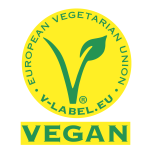What’s behind the meteoric rise
in popularity of vegan food?

Remember when ‘vegan’ was fringe?
How times have changed!
Like almost everything in life, foods can be ‘faddy’. But even when our preferences do change, it’s usually slowly or in baby steps. Or at least, that’s how it used to be before the meteoric rise of popularity in vegan food began to take hold.
Where once veganism was, at best, considered to be a small minority interest, the way we view what we eat have turned this market sector into a growth phenomenon. Today, the ‘minnow’ that drifted along almost unnoticed for so long, is now firmly rushing into the mainstream of our daily eating habits.
Almost in the blink of an eye, vegan retail values have rocketed into the eye-watering multi-billions. New product launches are dominated by plant-powered options. The hospitality industry has embraced vegan additions to its menus as demand expands exponentially. And these trends are being repeated right around the world.
In fact the numbers are so mind boggling it’s becoming harder and harder to keep up. So it’s fair to assume that an estimated doubling of the retail market in the next five years could prove to be decidedly on the safe side. Especially when we bear in mind perhaps the most startling statistic of them all. 92% of vegan food is eaten by non-vegans!
So what’s driving it?
Well, for a start, the eating choice we’ve always known as ‘vegan’ is undergoing something of a rebrand. The idea of ‘plant-based’ or ‘plant-powered’ food is now the order of the day with a majority of adult consumers now looking for this description rather than the usual ‘vegan’.
Partly this may be because it helps define a dish as being meat, dairy and egg free. But it also plays well to our rapidly growing respect for the environment and the widely held idea – particularly by Gen Z – that vegan eating is more transparent, eco-friendly and sustainable. In essence, it’s food that respects a world fit for future generations.
Then there are our health concerns. More and more of us are reviewing what we eat and how it impacts on our physical and mental wellbeing, our fitness, and our long-term health prospects. Flexitarianism offered us the chance to mix-and-match a more balanced diet. Vegetarianism offered us a meat-free option. But veganism allows us to focus entirely on a lifestyle that seems more in keeping with the 21st Century.
And then there’s the biggest change of all.
In a nutshell…it’s the food itself. It’s changing.
In part, this is thanks to a rapidly growing fanbase adding to the recipes and dishes we’re encountering every day, helped and encouraged by an online army of ‘influencers’ who are spreading the word.
But the biggest factor of all is innovation. Food technology has been on a fast and steep learning curve, the outcome of which is that meat-free, dairy-free ingredients have progressed in leaps and bounds.
PlantNation Grated is a perfect example. The breakthrough HPC Technology™ used in the manufacturing process has created a cheese alternative that not only looks and tastes like cheese, but performs like cheese too. These qualities alone make it particularly appealing, not just to the person who eats the “cheese” but to the chefs who prepare the dishes.
After all, when you can produce a vegan pizza, topped with a perfectly melted and browned plant-powered “cheese”, the menu options simply grow and grow.
More ‘plant-power’ to the takeaway
Thanks to the new online delivery options, and the many independents who have changed their business focus, takeaway food is bigger than ever. And, as in every other market sector, it’s vegan food that’s leading the way.
In the years running up to 2018, orders for vegan takeaway almost quadrupled. All the signs are that this trend continued up until 2020. And then came ‘stay-at-home’ Britain, with a population newly determined to exercise, stay fit, and eat more healthily.
So it’s fair to assume that in the last 12 months, demand for vegan food – especially takeaways – has probably gone right up through the velux!
Only time will tell. Watch this space…
For more information, contact us at [email protected]
ADDRESS
Ornua Ingredients Europe (UK) Ltd
Business Address
Spinneyfields Farm, Worleston, Nantwich, Cheshire, CW5 6DN
Facility Address
Spinneyfields Farm, Worleston, Nantwich, Cheshire, CW5 6DN
Business Registration Number 1933884
VAT Number GB482469807
© PLANTNATION LTD 2024 | COOKIE POLICY
